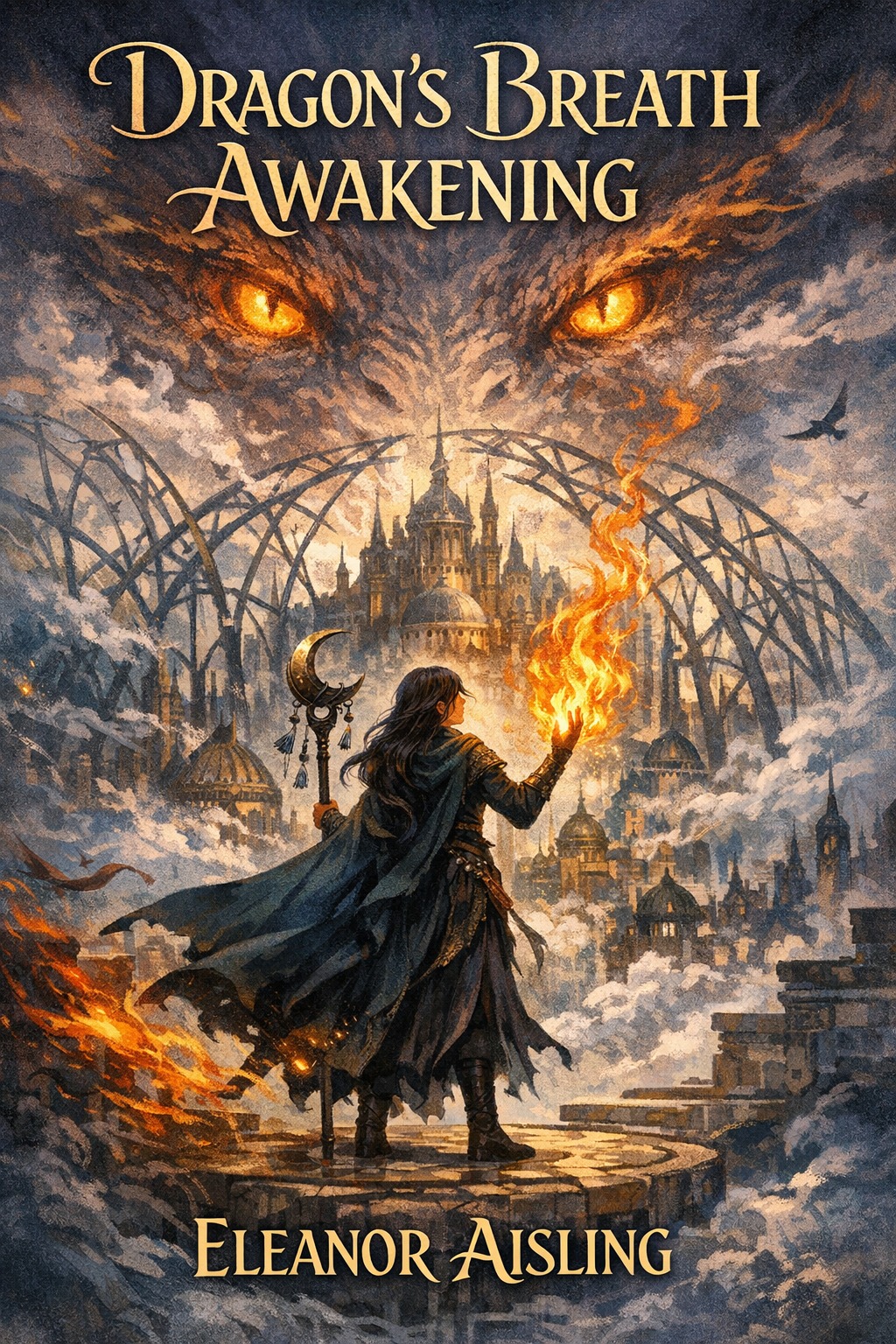Strong concept, uneven execution for my taste.
- Dense coinages early that read like a manual
- Recipe-as-chapter device grows repetitive
- Ivo's debt thread teased more than explored
- Stakes often explained in dialogue during the middle stretch

The Marshal of Silences keeps the city breathing in rhythm. She is ready to change the tune with fire.
Back when Kessa Bryn was a child, Caer Volantine was safe behind the Airsteel Lattice and dragonsong was a rumor, not a siren. But twelve years ago, the Lattice shattered in a storm called Lanternfall, and the Directorate fitted copper masks on every mouth it feared. Breathcraft is contraband, flutes are confiscated, and anyone who whispers in the old tongue disappears. If breath is so lethal, why did Kessa's aunt Brenna risk her life to smuggle vials of breathglass and a sealed glass lung etched with the name Vythrax? After a raid leaves the Bellows District scorched, Brenna vanishes, and Kessa inherits a ring of coil-keys and a ledger of recipes inked in salt by Gale Tamsin, an airship cook who once served the last riders.
As Kessa cooks through the ledger, she discovers the recipes are not meals but breath-cantos that tune the living fire sleeping beneath Volantine's basalt. The pages map alleyways like veins and cisterns like lungs; if completed, the cantos would rouse a buried dragon and wash the white-lung blight from the docks. If misplayed, they could vaporize half the harbor. To reach the heartchamber, she must bargain with Inspector Maelin Oross of the Directorate, sidestep the zealotry of the Coal Choir, and survive the double-edged help of Ivo Renn, a cartographer with debts to the Hush Archive. Who carries truth in a city where breathing is a crime: the Marshal, the Choir, or the vanished cook who writes in flavors no one remembers?
The first note will decide whether Kessa saves her aunt or sets the city alight. She can refuse the song, or awaken it. Either way, Caer Volantine will learn what a voice is worth.
Strong concept, uneven execution for my taste.
What kept me turning pages was Kessa herself. She cooks like a listener, testing memory against flame, and her inner debates about risk, debt, and family feel earned rather than tidy. The moments with Inspector Maelin Oross have a brittle courtesy that doubles as negotiation, and Ivo Renn's help reads like a map annotated with IOUs.
Dialogue carries as much tension as the cantos. People interrupt, bargain, and misdirect, and you can hear the city's rules in the way they speak. I wanted one more scene where Kessa and Maelin push each other past protocol, but as sketched here their dynamic has the kind of wary respect that lets future choices matter.
By vibe, it sits between Caruso's The Tethered Mage and Wecker's The Golem and the Jinni; technique-forward magic threaded through a humane, smoky city.
The plot's momentum wobbles. When the ledger's culinary puzzles take center stage, the investigation slackens, and when the Directorate thread heats up, the cantos recede. I liked both halves, but the handoff is sometimes clumsy, leaving a few chapters that feel like stage changes rather than continuous motion.
I am dazzled by the architecture of this world. The Airsteel Lattice, Lanternfall, and those copper masks feel engineered, not just named, and the rules of breathcraft are as precise as a smith's measure.
The artifacts sing. Breathglass that decants danger, a glass lung etched with the name Vythrax, coil-keys that whisper open the city's sealed places. None of it reads like ornament; everything carries weight, history, and risk.
Maps become anatomy. Alleyways throb like veins, cisterns swell like lungs, and the heartchamber waits with a kind of geological patience. The city is a body that can be healed or burned depending on how a song is cooked.
Factions complicate the air. The Directorate polices silence, the Coal Choir prays with zeal and soot, the Hush Archive accumulates debts with quiet knives. Even Inspector Oross is a study in conflicted duty. I believed in Caer Volantine because it is contradictory and alive.
I finished breathless and grateful. This is fantasy that remembers cities are systems, that language can be spice, and that a single note can change the weather.
The alternation of recipe-cantos with investigation scenes creates a syncopated structure that starts knotty with jargon but settles into a confident cadence as Kessa maps kitchens to cisterns and the prose clicks to the city's breath.
I inhaled this book and it lit my chest with cinder-bright certainty. The Marshal counts the city like a metronome and the story asks who gets to touch the dial. Every scene tastes of ash and citrus and copper as breath is taken from the private body and turned into public ordinance.
The question that rang in my head was this: "who carries truth when breathing is a crime?" That line refracts through every choice Kessa makes, and through every hiss of the masks that try to tame a living city. It is moral, it is musical, and it is furious.
I loved how recipes become cantos and kitchens become conservatories. Salt, smoke, and heat are syntax. When Kessa deciphers flavor into rhythm, the ledger stops being a book and becomes a key that turns in the dark.
Power here is not a sword but a held breath that might break a city or cleanse it. Institutions speak with choirs and archives, yet it is one cook's cadence that can wake fire under basalt. That inversion is the anthem I wanted to hear.
Electrifying, generous, and brave. The last page left me certain that voice costs, and still I wanted to pay.